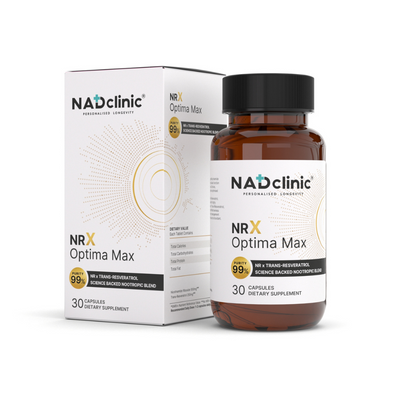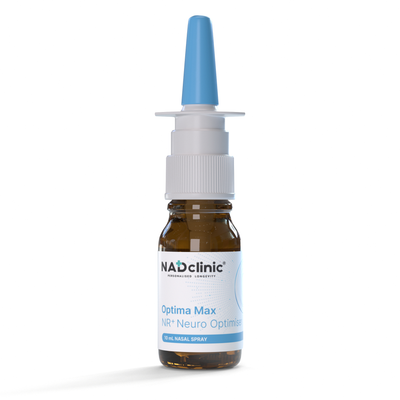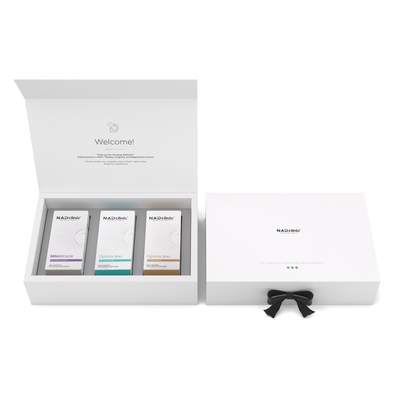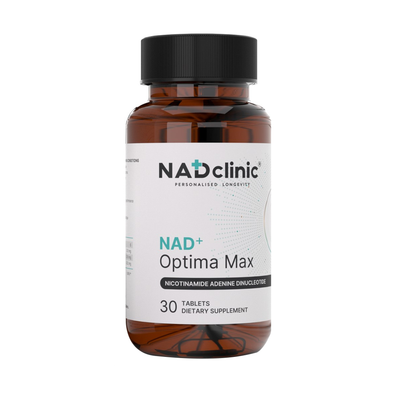ไม่มีอะไรจะเหมือนกับการมาถึงของฤดูใบไม้ผลิ - วันเวลายาวนานขึ้น, อากาศบริสุทธิ์และดอกไม้บานสะพรั่ง. แต่สำหรับล้านๆ, นอกจากนี้ยังเป็นสัญญาณของการกลับมาของอาการภูมิแพ้ตามฤดูกาลที่น่ารำคาญ: อาการจาม, ตาคัน, ความดันไซนัสและหมอกหนาที่สามารถทำให้มีเมฆมากได้แม้ในวันที่แดดจัดที่สุด. ยาแก้แพ้มักเป็นแนวป้องกันด่านแรก, แต่จะเกิดอะไรขึ้นหากการสนับสนุนระบบภูมิคุ้มกันของคุณในระดับที่ลึกกว่าจะช่วยบรรเทาอาการในระยะยาวได้?
ฤดูใบไม้ผลินี้, ถึงเวลาที่จะมองข้ามการควบคุมอาการ. พลังของ NAD+ อาจช่วยจัดการกับอาการแพ้ตามฤดูกาลได้ในระดับเซลล์.
อะไรเป็นสาเหตุของอาการแพ้ตามฤดูกาล?
สาเหตุของอาการแพ้ในฤดูใบไม้ผลิคือระบบภูมิคุ้มกันของคุณ, โดยเฉพาะ, ปฏิกิริยาที่มากเกินไปต่อสารที่ไม่เป็นอันตราย เช่น ละอองเกสรดอกไม้. ร่างกายของคุณระบุว่าอนุภาคเหล่านี้เป็นภัยคุกคาม, กระตุ้นการปล่อยฮีสตามีนและสารประกอบที่ก่อให้เกิดการอักเสบอื่นๆ. การพุ่งพล่านของภูมิคุ้มกันนี้ทำให้เกิดอาการที่คุ้นเคย: อาการบวม, ความแออัด, อาการคัน, และความรู้สึกไม่สบายทั่วไป.
ยาแก้แพ้ออกฤทธิ์โดยการปิดกั้นสัญญาณเหล่านั้น, บรรเทาอาการในระยะสั้น. แต่พวกเขาไม่ได้ตอบคำถามที่ลึกซึ้งกว่านั้น: ทำไม ระบบภูมิคุ้มกันของคุณกำลังตอบสนองมากเกินไปในตอนแรกหรือเปล่า?
NAD⁺ และการควบคุมภูมิคุ้มกัน
มาดู Nicotinamide Adenine Dinucleotide (NAD⁺) กันดีกว่า, โมเลกุลที่พบตามธรรมชาติในเซลล์สิ่งมีชีวิตทุกชนิด. เป็นที่รู้จักกันดีที่สุดสำหรับบทบาทในการผลิตพลังงานและการซ่อมแซมดีเอ็นเอ, แต่การวิจัยยังแสดงให้เห็นอีกด้วยว่า NAD⁺ มีความเกี่ยวข้องอย่างใกล้ชิดกับการควบคุมภูมิคุ้มกันและการอักเสบ.
วิธีการมีดังนี้:
-
NAD⁺ กระตุ้นการเผาผลาญของเซลล์ภูมิคุ้มกันและการหายใจ, ซึ่งเป็นสิ่งจำเป็นต่อการทำงานโดยรวมของพวกเขา.
-
มันสนับสนุนการทำงานของเซอร์ทูอิน, กลุ่มโปรตีนที่ช่วยควบคุมการอักเสบและการตอบสนองต่อความเครียดของเซลล์.
-
มีบทบาทในการปรับเปลี่ยนเซลล์ T และแมคโครฟาจ, ช่วยรักษาสมดุลภูมิคุ้มกันและป้องกันการอักเสบเรื้อรังหรือมากเกินไป.
เมื่อระดับ NAD⁺ อยู่ในระดับที่ดี, ระบบภูมิคุ้มกันของคุณอาจมีแนวโน้มที่จะคงสมดุลและตอบสนองได้อย่างเหมาะสม.
ปัญหาคือ? NAD⁺ ลดลงตามอายุ, โดยระดับร่างกายลดลงเนื่องจากปัจจัยต่างๆ เช่น ความเครียด, การนอนหลับไม่ดี, การดื่มแอลกอฮอล์และการเจ็บป่วย - มักเกิดขึ้นในช่วงฤดูหนาวก่อนถึงฤดูใบไม้ผลิ.
NAD⁺ ต่ำอาจทำให้ระบบภูมิคุ้มกันของคุณตอบสนองได้ดีขึ้นและควบคุมได้น้อยลง, อาจทำให้อาการแพ้รุนแรงขึ้นหรือหายยากขึ้น.
โซลูชั่น NADclinic
หากคุณเบื่อกับการพึ่งยาแก้แพ้เพียงอย่างเดียว, อาจถึงเวลาที่จะต้องฉลาดขึ้น, แนวทางเชิงรุกมากขึ้น. การเสริมสร้างระบบภูมิคุ้มกันของคุณในระดับเซลล์ด้วย NAD⁺ อาจช่วยลดความรุนแรงของอาการแพ้ได้, ปรับปรุงความยืดหยุ่น, และช่วยให้คุณรู้สึกควบคุมได้มากขึ้นในฤดูกาลนี้.
คลินิก NAD Optima Max ที่ได้รับการปรับปรุง แคปซูลอาจช่วยสร้างความทนทานต่ออาการแพ้ตามฤดูกาลในระยะยาว. แต่ละเม็ดได้รับการคิดค้นทางคลินิก, ส่งมอบ NAD⁺ เข้มข้น 250 มก. ต่อแคปซูลเพื่อช่วยเสริมสร้างระบบภูมิคุ้มกัน.
ลองผลิตภัณฑ์เสริมอาหาร Enhanced Optima Max ของเราทุกวันและค้นพบความแตกต่างที่สามารถสร้างพลังงานให้กับคุณได้, ความชัดเจนและสมดุลภูมิคุ้มกันในฤดูใบไม้ผลิปีนี้.
Featured products
Discover our most popular items

NADSQx สมาร์ทเพน 1000 มก.

ชุดทดสอบ NAD+ ระดับ

NRX Optima Max

Optima Max - NR 点鼻薬

Optima Max - ชุดกล่องของขวัญ
อ่านเพิ่มเติม

ในบล็อกนี้, เราจะมาสำรวจกันว่า NAD+ ช่วยสนับสนุนพลังงานและการฟื้นตัวอย่างไร, ทำไมมันจึงมีแนวโน้มที่จะหมดลง (โดยเฉพาะอย่างยิ่งเมื่อชีวิตเต็มไปด้วยความเร่งรีบ), และคุณสามารถให้ระดับของคุณอย่างรวดเร็ว...
READ MORE HERE
ในการแสวงหาความชุ่มชื้น, เรืองแสง, ผิวอ่อนเยาว์, เรามักจะทาเซรั่มและครีมหลายๆ ชั้นโดยไม่ได้คิดถึงสิ่งที่อยู่ข้างใน. บ่อยครั้งมากกว่าไม่, พวกเขาขาดส่วนผสมสำคัญ: NAD⁺. โคเอนไซม์ที่จำเป็นนี้ช่วยเติมพล...
READ MORE HERE


